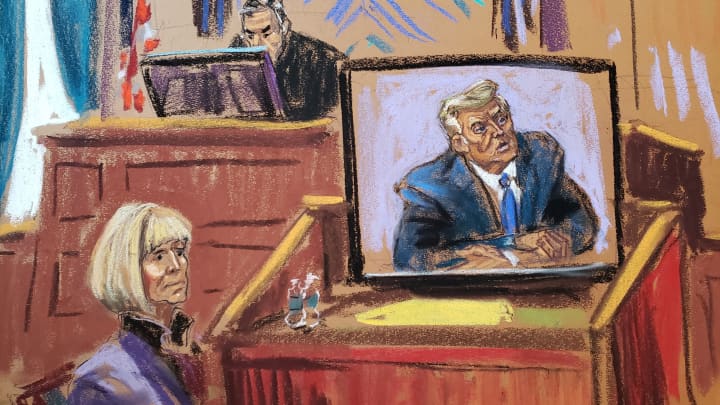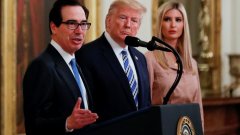
A federal appeals court on Thursday denied former President 's request to halt proceedings in the .
In a court filing last week, Trump's attorneys asked the 2nd U.S. Circuit Court of Appeals to delay the case for 90 days while he considered appealing the court's previous rejection of his efforts to use presidential immunity as a defense.
The appeals court on Thursday, allowing the trial to begin Jan. 16.
Trump's request for a pause in the proceedings came after the appeals court unanimously ruled that the former president had — three years — to raise his presidential immunity defense in the defamation trial.
Trump had argued that he couldn't be sued for remarks he made in 2019 about Carroll and the because he was president at the time. He also contended that his comments were related to his official duties as president because he needed to speak publicly about the accusations being false.
Read more on NBC News
The court noted that while Carroll filed her defamation suit in November 2019, followed by Trump's response in January 2020, he didn't bring up the presidential immunity defense until January 2023. Allowing him to use that defense now would cause "undue prejudice" to Carroll, the judges said in their ruling.
The upcoming trial is the second one involving Trump and Carroll, a magazine writer who alleged Trump raped her in the mid-1990s and defamed her after she spoke out publicly with her accusations in 2019. Trump has repeatedly denied the allegations. A jury this year and awarded Carroll $5 million in damages, a verdict Trump is appealing.
The second trial centers on remarks Trump made about Carroll during his presidency and after the $5 million verdict, including his disparaging comments against her such as calling her a The trial, which is expected to last three to five days, only focuses on what money damages Carroll is entitled to.
U.S. District Judge Lewis Kaplan in June denied Trump's immunity argument, writing that presidential immunity is "not a 'get out of damages liability free' card."
Trump has also raised the presidential immunity argument in the election interference case brought against him by special counsel Jack Smith. U.S. District Judge Tanya Chutkan shot down his argument in that case, ruling this month that the former president was to the criminal charges. Trump, who has pleaded not guilty in the case, appealed the ruling to the federal appeals court in Washington, D.C. The Supreme Court last week for the high court to immediately decide the matter.



